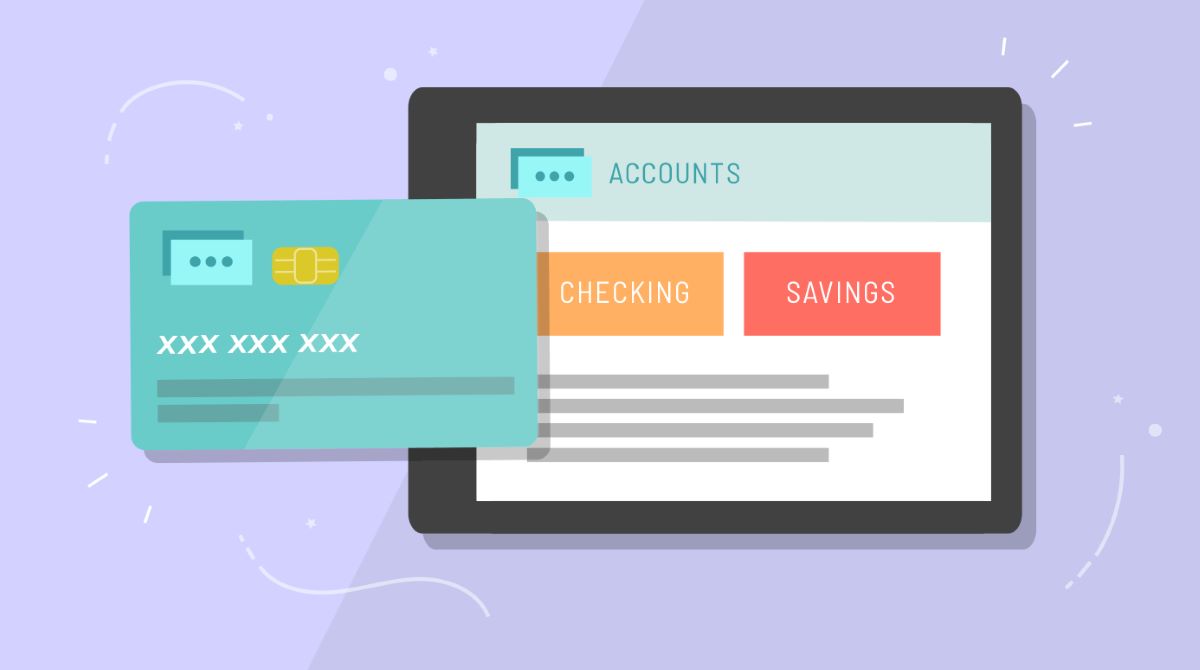Home>Finance>What Happens If You Go Over Your Credit Card Limit


Finance
What Happens If You Go Over Your Credit Card Limit
Modified: February 25, 2024
Discover the consequences of exceeding your credit card limit and how it impacts your finances. Learn the risks and find solutions to manage your credit effectively.
(Many of the links in this article redirect to a specific reviewed product. Your purchase of these products through affiliate links helps to generate commission for LiveWell, at no extra cost. Learn more)
Table of Contents
Introduction
Having a credit card can offer numerous benefits, from convenience and flexibility to building a good credit history. However, it also comes with responsibility, especially when it comes to managing your credit card limit. Your credit card limit is the maximum amount of money that you can charge to your card without incurring any additional fees or penalties.
While it can be tempting to spend up to your credit card limit, it’s important to understand the potential consequences of going over this limit. In this article, we will explore what happens when you exceed your credit card limit and the impact it can have on your financial well-being.
Understanding the terms and conditions of your credit card agreement is crucial to avoid any surprises. Each credit card issuer may have different policies regarding going over the credit card limit, so it’s essential to familiarize yourself with your specific card’s terms.
By gaining a comprehensive understanding of the potential repercussions, you can make informed financial decisions and develop strategies to manage your credit card limit effectively.
Understanding Credit Card Limits
Credit card limits are predetermined by the credit card issuer and are based on various factors including your creditworthiness, income, and credit history. It represents the maximum amount of money that you can borrow or charge on your credit card.
When you open a credit card account, the issuer sets your credit limit with an initial amount. This limit can be influenced by factors such as your income, credit score, and any existing debt obligations. It’s important to note that your credit limit is not a suggestion or a target to spend up to; exceeding this limit can lead to negative consequences.
Credit card issuers typically offer different types of credit limits, ranging from low limits for individuals establishing credit to higher limits for those with excellent credit profiles. You can contact your credit card issuer to request a higher credit limit if your income and creditworthiness have improved since you initially received the card.
It’s important to keep in mind that your credit limit is not a representation of your available funds or purchasing power; it is the maximum amount you can charge on your credit card. Therefore, it’s crucial to track your credit card usage and balance to ensure you do not exceed your set limit.
By understanding your credit card limit and how it is determined, you can make informed decisions about your personal finances and avoid potential pitfalls associated with going over your limit.
Consequences of Exceeding Your Credit Card Limit
Exceeding your credit card limit can have several consequences that can negatively impact your financial situation. It’s essential to be aware of these consequences to avoid jeopardizing your creditworthiness and incurring unnecessary fees and penalties.
1. Over-Limit Fees and Penalties: One of the immediate consequences of going over your credit card limit is the imposition of over-limit fees by your credit card issuer. These fees can vary depending on the card issuer and the extent to which you exceed your limit. These fees can add up quickly, resulting in additional outstanding debt that you need to repay.
2. Higher Interest Rates: Going over your credit card limit can often trigger an increase in your interest rate. Issuers may view exceeding your credit limit as a sign of increased risk and may apply a penalty interest rate, resulting in higher finance charges on your outstanding balance. This can make it even more challenging to pay off your credit card debt in a timely manner.
3. Negative Impact on Credit Score: Your credit utilization ratio, which measures the amount of credit you’re using compared to your total credit limit, is an essential factor in determining your credit score. Exceeding your credit limit can significantly increase your credit utilization ratio, which can negatively impact your credit score. A lower credit score can make it more difficult for you to obtain future credit or loans at favorable interest rates.
4. Damage to Creditworthiness: Going over your credit card limit can reflect poorly on your creditworthiness. Lenders may view this as a sign of financial mismanagement and may be hesitant to extend credit to you in the future. This can make it challenging to secure loans for important purchases such as a car or a home.
5. Possible Account Closure: In some cases, repeatedly exceeding your credit card limit can lead to the closure of your credit card account by the issuer. This can further impact your credit history and reduce the available credit you have access to.
It’s crucial to understand and consider these consequences before utilizing your credit card to its maximum limit. By staying within your credit card limit, you can avoid financial setbacks and maintain a healthy credit profile.
Over-Limit Fees and Penalties
When you exceed your credit card limit, most credit card issuers impose over-limit fees and penalties. These fees can add to the financial burden and make it even more challenging to manage your credit card debt. It’s essential to understand the potential fees and penalties associated with going over your credit card limit.
1. Over-Limit Fees: When you exceed your credit card limit, the credit card issuer may charge you an over-limit fee. This fee can vary depending on the credit card issuer and the extent to which you surpass your limit. Over-limit fees can range from a fixed amount to a percentage of the amount you have exceeded your limit by. These fees can range from $25 to $35, but it’s crucial to check your credit card agreement to confirm the exact amount.
2. Ongoing Penalties: In addition to the initial over-limit fee, some credit card issuers may continue to impose penalties for each billing cycle that your account remains over the credit limit. These ongoing penalties can further increase your outstanding balance and make it more challenging to pay off your debt.
3. Higher Interest Rates: Exceeding your credit card limit can trigger an increase in your interest rate, making it more expensive to carry a balance. Some credit card issuers may apply penalty interest rates if you surpass your credit limit, which can add to the finance charges on your outstanding balance. The combination of higher interest rates and over-limit fees can result in significant financial costs over time.
4. Additional Finance Charges: Going over your credit card limit may also result in additional finance charges on your outstanding balance. These charges are typically calculated based on the average daily balance and the interest rate of the credit card. The higher your balance, the more you will pay in finance charges, making it harder to pay off your debt.
5. Impact on Credit Score: Exceeding your credit card limit can negatively impact your credit score. As mentioned earlier, credit utilization ratio is an essential factor in determining your credit score. Going over your limit can increase your credit utilization ratio, which can lower your score. A lower credit score can make it more challenging to access credit in the future and may result in higher interest rates on loans.
To avoid over-limit fees and penalties, it’s important to monitor your credit card balance regularly and stay within your credit limit. If you find yourself consistently exceeding your limit, consider adjusting your spending habits, seeking a higher credit limit, or exploring alternative financial strategies to avoid these additional costs.
Impact on Credit Score
Exceeding your credit card limit can have a significant impact on your credit score. Your credit score is a numerical representation of your creditworthiness and is used by lenders to assess your risk as a borrower. When you go over your credit card limit, it can negatively affect your credit score in several ways.
1. Increased Credit Utilization Ratio: Your credit utilization ratio is the percentage of your available credit that you are using. It is calculated by dividing your credit card balance by your credit card limit. Exceeding your limit increases your credit card balance and, consequently, your credit utilization ratio. High credit utilization ratios can have a negative impact on your credit score, as it indicates a higher dependency on credit and potential financial instability.
2. Lower Credit Score: Credit scoring models consider credit utilization as a significant factor in calculating your credit score. A higher credit utilization ratio resulting from exceeding your credit card limit can cause your credit score to decrease. This decrease can make it more challenging for you to obtain credit in the future or be approved for favorable interest rates on loans.
3. Negative Credit History: Exceeding your credit card limit can also result in negative entries on your credit report. Late payments or collections resulting from going over your limit can stay on your credit report for up to seven years. Negative entries on your credit report can severely impact your credit score and make it harder to access credit or secure favorable loan terms.
4. Difficulty Obtaining Future Credit: Lenders consider your creditworthiness when evaluating loan applications. Consistently exceeding your credit card limit can make lenders hesitant to extend credit to you. Financial institutions may view it as an indication that you are not capable of managing your credit responsibly, which can lead to loan denials or higher interest rates in the future.
To minimize the impact on your credit score, it’s crucial to stay within your credit card limit and manage your credit utilization ratio effectively. Regularly monitor your credit card balances, make payments on time, and consider paying off your balances in full each month to maintain a healthy credit score. Remember, your credit score plays a significant role in your financial life, so it’s essential to protect it by managing your credit responsibly.
Late Payment Consequences
When you exceed your credit card limit, it can often lead to late payments, which come with their own set of consequences. Late payments occur when you fail to make the minimum payment by the due date specified in your credit card statement. Late payments can have several negative repercussions that can impact your financial situation and credit history.
1. Late Payment Fees: Credit card issuers typically charge late payment fees if you fail to make at least the minimum payment by the due date. These fees can range from $25 to $39, depending on the credit card issuer and the terms of your credit card agreement. Late payment fees add to your outstanding balance and increase your overall debt.
2. Higher Interest Rates: Late payments can trigger penalty interest rates, which are higher than your regular interest rate. These penalty rates can significantly increase the cost of carrying a balance on your credit card. Higher interest rates make it more challenging to pay off your balance and can result in more debt over time.
3. Negative Impact on Credit Score: Late payments can have a severe impact on your credit score. Payment history is the most significant factor in calculating your credit score, accounting for approximately 35% of the overall score. A history of late payments can significantly lower your credit score and make it more challenging for you to access credit in the future.
4. Collection Efforts and Legal Action: If your late payments continue and you fall significantly behind on your credit card payments, your account may be sent to collections. Collection agencies will attempt to recover the outstanding debt on behalf of the credit card issuer. In extreme cases, the credit card issuer may pursue legal action against you to recover the debt.
5. Damaged Credit History: Late payments remain on your credit report for up to seven years. Multiple late payments can tarnish your credit history, making it harder to obtain credit in the future. Potential lenders may view a history of late payments as a sign of financial irresponsibility and may be hesitant to extend credit or offer favorable interest rates.
To avoid late payment consequences, it’s crucial to make your credit card payments on time. Set up reminders or automatic payments to ensure you never miss a payment. If you are struggling to make your minimum payments, contact your credit card issuer to discuss potential options, such as a payment plan or hardship program.
Strategies to Avoid Going Over Your Credit Card Limit
Exceeding your credit card limit can have severe financial consequences. To prevent this from happening, it’s crucial to develop effective strategies to manage your spending and avoid going over your credit card limit. Here are some strategies to consider:
1. Monitor Your Credit Card Balance: Regularly keep track of your credit card balance to ensure you stay within your credit limit. Check your balances online or through mobile banking apps to have a real-time view of your spending and available credit.
2. Create a Budget: Establish a budget that outlines your monthly income and expenses. This allows you to allocate funds for necessary expenses and avoid unnecessary spending that could push you over your credit card limit.
3. Track Your Purchases: Keep a record of your purchases and review them periodically to identify any patterns of excessive spending. This will help you become more aware of your financial habits and make adjustments as needed.
4. Use Alerts and Notifications: Set up alerts and notifications from your credit card issuer to receive updates about your credit card balance. This can help you stay informed and take action if you are approaching your credit limit.
5. Pay Multiple Times per Month: Instead of waiting for the statement due date, consider making multiple payments throughout the month. This can help you keep your credit card balance in check and reduce the chances of exceeding your limit.
6. Consider a Credit Limit Increase: If you consistently find yourself reaching your credit card limit, contact your credit card issuer to request a credit limit increase. This can provide you with more flexibility and a higher credit buffer to prevent going over your limit.
7. Utilize Available Online Tools: Many credit card issuers offer online tools and resources to help you manage your credit card spending efficiently. Take advantage of these tools to set spending limits, receive spending alerts, and track your expenses effectively.
8. Avoid Cash Advances: Cash advances on your credit card often come with higher fees and interest rates. These advances can quickly add to your credit card balance and increase the risk of going over your credit limit. It’s best to avoid them if possible.
By implementing these strategies, you can take control of your credit card usage and minimize the risk of exceeding your credit card limit. Maintaining a responsible approach to spending and credit management will contribute to your long-term financial stability and help you avoid unnecessary fees and penalties.
Tips for Managing Your Credit Card Limit Effectively
Managing your credit card limit effectively is essential for maintaining a healthy financial life and avoiding the negative consequences of exceeding your limit. Here are some tips to help you manage your credit card limit effectively:
1. Set a Personal Credit Limit: While your credit card issuer sets your credit limit, you can establish a personal credit limit that is lower than the maximum allowed. This gives you a buffer zone and reduces the risk of unintentionally going over your credit card limit.
2. Track Your Spending: Keep track of your credit card spending by reviewing statements and online transactions regularly. Monitoring your expenses helps you stay aware of your spending habits and allows you to make adjustments to stay within your credit card limit.
3. Pay Attention to Automatic Payments: If you have recurring automatic payments set up on your credit card, ensure that the total amount does not push you over your credit card limit. Consider adjusting or spreading out these payments, if necessary.
4. Pay More than the Minimum Due: Aim to pay more than the minimum due on your credit card each month. By paying off your balance faster, you reduce the risk of carrying a high balance that could push you closer to or over your credit card limit.
5. Avoid Maxing Out Your Credit Card: It’s best to avoid using your credit card up to its maximum limit. Maxing out your credit card not only increases the risk of going over the limit but also negatively impacts your credit utilization ratio, which can damage your credit score.
6. Utilize Available Credit Monitoring Tools: Take advantage of credit monitoring tools and apps that can provide real-time updates on your credit card balance and alert you when you are approaching your limit. These tools can help you stay on top of your credit card usage.
7. Plan Ahead for Large Purchases: If you plan to make a large purchase, consider how it might impact your credit card balance and credit limit. If necessary, contact your credit card issuer in advance to discuss the options available to accommodate your purchase.
8. Regularly Review Your Credit Card Agreement and Terms: Stay updated on the terms and conditions of your credit card agreement. Be aware of any changes in interest rates, fees, or credit limit policies. Understanding these details helps you manage your credit card limit effectively.
9. Communicate with Your Credit Card Issuer: If you anticipate difficulties in making your credit card payments or are concerned about exceeding your credit card limit, reach out to your credit card issuer. They may provide options such as payment plans or temporary limit increases to help you manage your finances better.
By implementing these tips, you can maintain control over your credit card limit, avoid going over your limit, and keep your financial health in check. Remember, responsible credit card management leads to a stronger financial future.
Conclusion
Managing your credit card limit is a crucial aspect of maintaining a healthy financial life. Exceeding your credit card limit can lead to over-limit fees, penalties, a negative impact on your credit score, late payment consequences, and other financial setbacks. To avoid these consequences, it’s important to understand your credit card limit, track your spending, and develop effective strategies to stay within your limit.
By monitoring your credit card balance, creating a budget, and tracking your purchases, you can enhance your financial awareness and make informed spending decisions. Utilizing alerts and notifications, paying multiple times per month, and considering a credit limit increase are additional strategies to help you manage your credit card limit effectively.
Avoiding late payments and their associated fees, as well as the negative impact on your credit score, is crucial. By making payments on time and exploring options with your credit card issuer if you’re having difficulty, you can maintain a positive credit history.
Ultimately, responsible credit card management involves regularly reviewing your credit card agreement, staying informed about your credit card terms, and communicating with your credit card issuer when necessary. By implementing these practices, you can navigate your credit card usage successfully while avoiding the pitfalls of going over your credit card limit.
Remember, your credit card limit is not a target to reach but a maximum to be mindful of. By maintaining control over your credit card limit, you can protect your creditworthiness, enjoy the benefits of your credit card, and build a strong financial foundation for the future.














